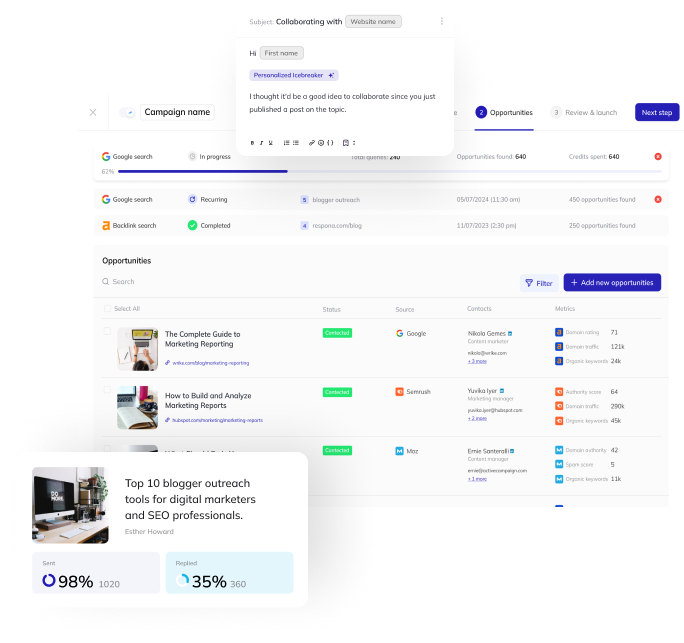Link Profile
What is a Link Profile?
Your site’s link profile is the sum of all the backlinks pointing to it, as well as the quality of those links.
The better the quality of the links, the better your site will perform in search results. Keep in mind that it’s not just the quantity of links that matters, but also their quality.
To ensure that your links are high quality, they should come from reputable sources with high domain authority, and the anchor text should be diverse and natural – although this is just the basics.
We will be looking at exactly what makes a link profile good further down in the article.
Link profiles have an impact on every part of a site’s performance, including ranking and building domain authority.
What is the importance of a good link profile?
The strength of the link profile is an important signal to search engines, as it reveals both the quality of your content as well as whether or not you’re engaging in practices that they deem unfair.
A good link profile is one that means your site is getting quality links from other sites – relevant links, from sites with high domain authority, and with proper anchor texts.
There are many audit tools available to assess the quality of a link profile, such as Link Explorer by Moz, and Google Analytics.
Links pass on PageRank – which, in turn, directly affects your search rankings.
To put it bluntly, the more quality links your website has, the higher it will rank in search engines.
However, not all links are created equally, so let’s take a look at exactly what makes a link profile good.
What makes a link profile good?
There are many aspects that can make or break a link profile.
Let’s take a look at each one of them.
Quality links
Links from high-authority websites are more likely to improve your ranking than links from low-authority websites.
This is because links from high-authority websites are seen as more trustworthy by search engines.
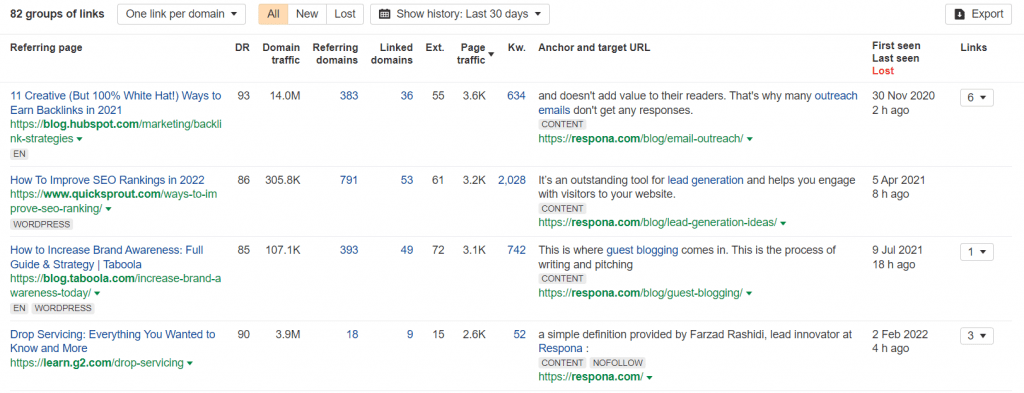
Google looks at backlinks when it is trying to figure out how reputable, trustworthy, and knowledgeable your site is in relation to a certain subject.
This is why links from low-authority sites are not as useful. It is better to have a few links from high-quality sites than a lot of links from lower-quality ones.
Those who try to get a lot of links from less reputable sources will not see their SERP (search engine results page) improve as much as those who get links from more authoritative domains.
It is best to avoid low-quality links altogether.
Relevant links
A link is relevant if it is from a website that is about the same topic as your website.
For example, if you have a website about cars, a relevant link would be from a website about cars, not one about gardening.
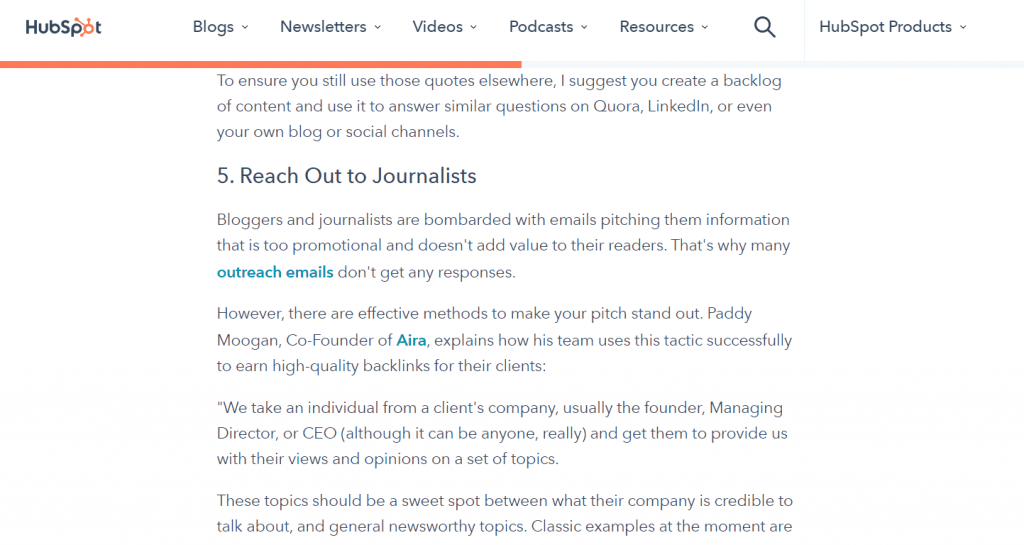
The more relevant a website is to yours, the more valuable its link will be.
Irrelevant links (for example from a blog post on how to bake a cake to a link building guide) are typically picked up by the Google algorithm and de-valued, meaning they don’t actually contribute to your website’s rankings.
Link anchor texts
Anchor text is the clickable part of a hyperlink.
It is important that the anchor text is relevant to the page it is linking to.
For example, if the anchor text says “LinkedIn”, the linked page should be about LinkedIn.
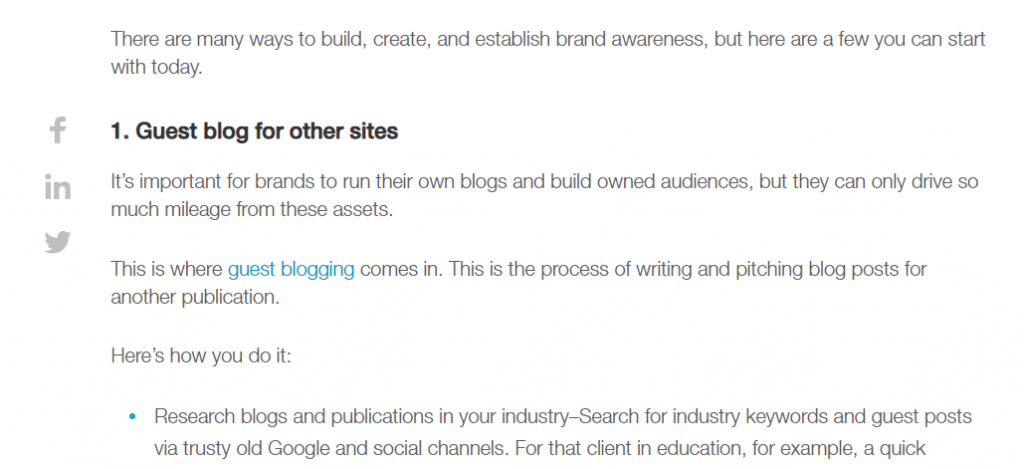
The common belief used to be that the best anchors were the ones that exactly matched keywords.
So, if your page was about “the best laptops in 2022”, that’s what the backlink anchor should say.
However, Google’s algorithm update in 2013 changed this preference to now prefer more natural anchors, called diluted anchors.
This means that instead of an exact match, your link should be placed in a more normal sentence.
Some exact-match and keyword anchors are still okay, but diversity is key.
Branded anchors (usually the name of your company or product) can still be exact matches and point to your URL, but it’s good to combine them with diluted anchors or keyword anchors.
Surrounding context
In order for a link to be helpful in building a quality link profile, it needs to come from a high domain authority site, be relevant, and have relevant anchor text.
Additionally, the surrounding context of the link should be relevant to the linked content.
For example, a link with branded anchor text from an SEO blog to a content marketing company would be more helpful if the blog post specifically talked about content marketing, rather than an unrelated topic, such as keyword research.
Freshness
While it is important to have backlinks from sites with high domain authority, it is also important to consider the freshness of the backlink.
Just like many things in this world, backlinks can go stale over time. The contribution of a backlink to your link profile falls over time.
Even if the site that the backlink is coming from has a high domain authority, a seven-year-old link from that site is not going to be as beneficial as a much fresher link from a site with a lower domain authority.
Link freshness is also connected to page freshness. Google looks at things such as the date of page creation and how often the page is updated when determining the freshness score of a page.
In general, you want to have fresh links from sites that are regularly updated with new content.
Referring domains
A strong link profile is important for off-page SEO, but it is not only the number of backlinks that matters.
The diversity of the sources of those backlinks is also important. A single site linking to your landing page over and over again is less impactful than a diverse set of relevant sites linking to your page.
Link Profile Example
The following example is our own link profile, according to Ahrefs:
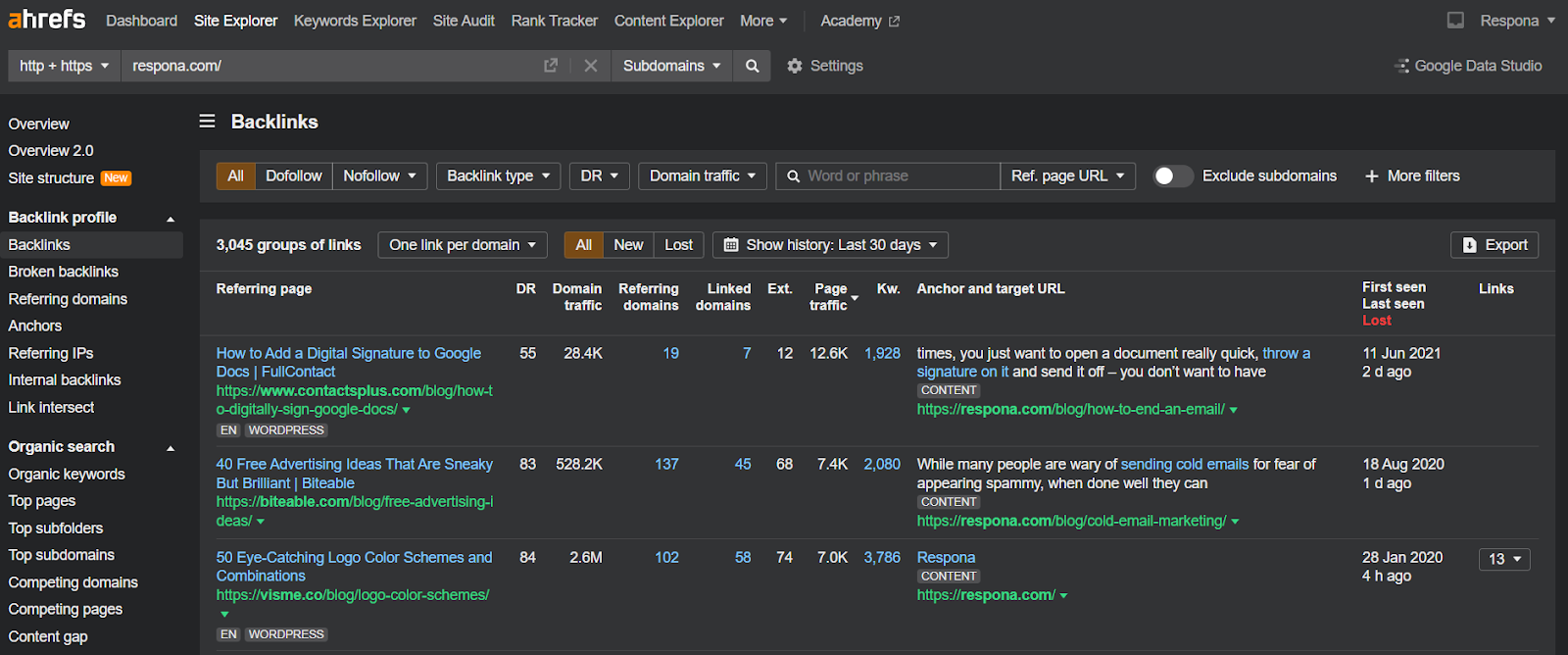
How to Ensure the Quality of Your Link Profile?
If you want to have a healthy link profile, avoid the following three elements.
They don’t improve your SERP or any performance metrics, and can even get you penalized by Google.
To prevent this, take the following actions.
Don’t pay for links
Paid links are the opposite of natural backlinks, and are against Google’s terms of service. You should never be paying for links or exchanging any goods and services for them.
If you ever pay for any sort of promotion, any backlinks that you get as part of it should be marked with the “rel=sponsored” tag.
It significantly reduces the amount of “link juice that the link passes on, but keeps you on Google’s good side.
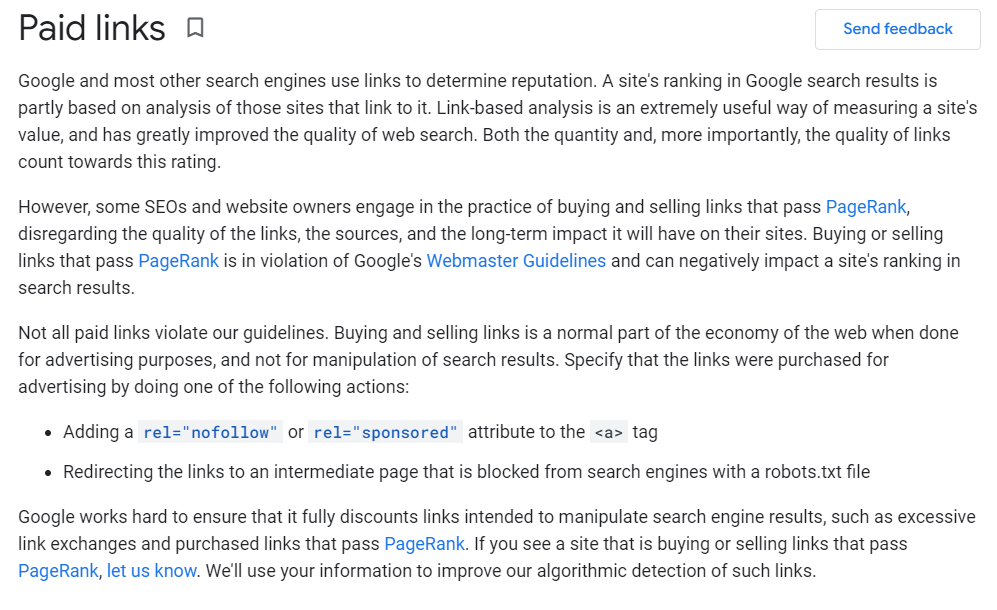
The “sponsored” tag is new and it means that the link will not pass on link authority to the site it is linking to. This is similar to a no-follow link.
If a site owner pays for a link, they need to make sure that the link looks natural and provides value to users.
If the link is obviously paid for and the only goal is to improve search engine rankings, the site will be penalized.
Avoid low-authority links
High-authority links from websites in your niche are good for SEO because they help your website rank higher in search engine results pages.
Low-authority links, on the other hand, don’t contribute to your website’s rankings.
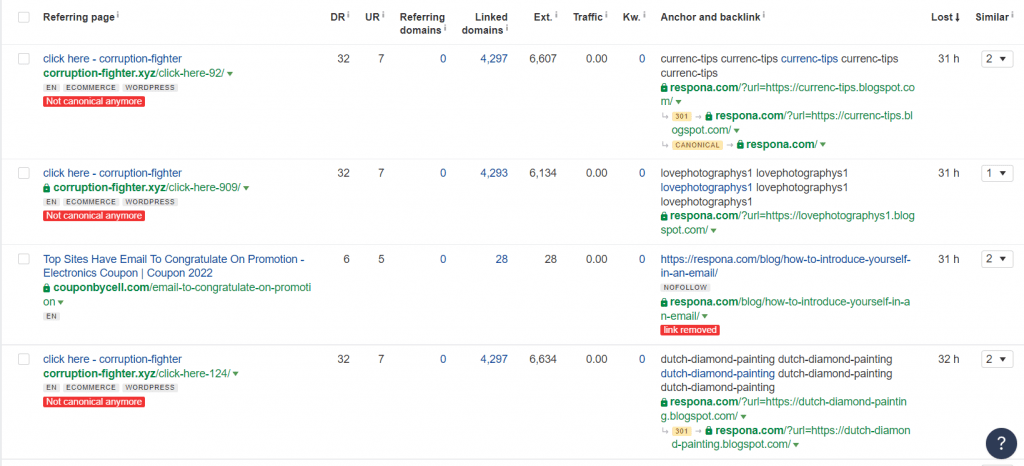
The links are found on spammy sites and in directories. Over time, having a lot of links from these types of sites can lead to a penalty.
If your link profile analysis discovers a lot of low-authority links from spammy or irrelevant sites, the best thing to do is disavow them.
In the long run, it’s the quality of your inbound links that matters much more than their quantity.
Diversify your link profile
It’s important to have links to your site that go beyond just your homepage or landing pages.
Having a mix of links that go to different pages on your site helps increase the overall authority of your site.
This is because it signals to search engines that you’re producing content worthy of linking and of value to users.
Content marketing is an important factor in your link profile.
Creating high-quality content that others will want to link to is the best way to get good links going deep in your site structure.
Bottom Line
So, what makes a good link profile?
- Lots of backlinks from high-quality, relevant resources
- Relevant anchor texts of said links
- Surrounding content making sense for the links
- Link freshness
- Total number of referring domains
And, to ensure the quality of your link profile, you should never pay for links, avoid links from low-authority websites, and make sure that you have plenty of links leading to all of your pages, and not just your homepage or product/service pages.
